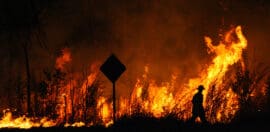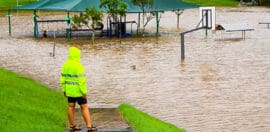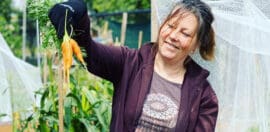Australia faces a multi-billion dollar economic hit without strong climate action

17 February 2020 at 3:40 pm
Inaction on climate change could cost the global economy up to US$9.87 trillion by 2050
A “business as usual” approach to tackling climate change would cost the Australian economy at least $29 billion a year, new research shows.
A report from the World Wide Fund for Nature calculated the economic cost for 140 countries if the world doesn’t urgently act on the global environmental crisis.
Australia was ranked the fifth worst affected nation by the loss of nature over the next 30 years, with the country’s annual income set to decline by 1.43 per cent by 2050.
WWF-Australia economist Joshua Bishop said across all countries the reduction was 0.67 per cent, meaning Australia was projected to lose more than twice the global average.
“Because so much of Australia’s population, infrastructure and service sector output is concentrated in coastal areas, we are more vulnerable than most to sea level rise and storm surges,” Bishop said.
WWF noted that the damage could be much worse than anticipated, as the economic cost calculated did not consider the destruction from future bushfire emergencies.
The study used new economic and environmental modelling to assess the macroeconomic impact if the world continued a “business as usual” approach to the environment.
This approach – which includes continued greenhouse gas emissions increases, and further loss of natural habitats – would cost the world up to US$9.87 trillion (A$14.68 trillion) by 2050.
Marco Lambertini, director general of WWF International, said the study showed how conserving nature was not only a moral issue but a social and economic one.
“People across the world are already feeling the impact of rising food prices, droughts, commodity shortages, extreme flooding and coastal erosion,” Lambertini said.
“Yet for the next generation things will be many times worse, with trillions wiped off world economies by 2050.”
The report said if land-use was better managed in the future to conserve biodiversity and ecosystem services, it would deliver dramatically better economic outcomes.
Under this scenario, global GDP would rise by $490 billion a year above the business as usual calculation, while damage to Australia’s GDP would be halved to $14.3 billion by 2050.
Bishop said this highlighted the opportunity Australia had “to save billions by protecting our coastal areas, forests and woodlands and becoming a world leader in renewable energy”.
Meanwhile, new analysis from the Australian Conservation Foundation has found that fossil fuel industry donations to Australia’s major political parties have more than doubled over the past four years.
Read more: 430 million reasons why the social sector needs to ‘up its game’ with federal Parliament
Australian Electoral Commission data revealed that the coal, oil and gas industry’s political donations grew from $894,336 in 2015-16 to $1.9 million in 2018-19.
This figure excludes Clive Palmer’s $83.7 million donation to his own party.
ACF’s democracy campaigner Jolene Elberth said these figures highlighted the extent of the fossil fuel industry’s attempts to buy political power in Australia.
“As more Australians demand action on climate change and the pressure builds on politicians to take the problem seriously, the fossil fuel industry is doubling down by spending more money to influence public policy,” Elberth said.
“Serious donations reform is needed to curb the power of big money in politics which harms our natural world and drives more climate damage.”







